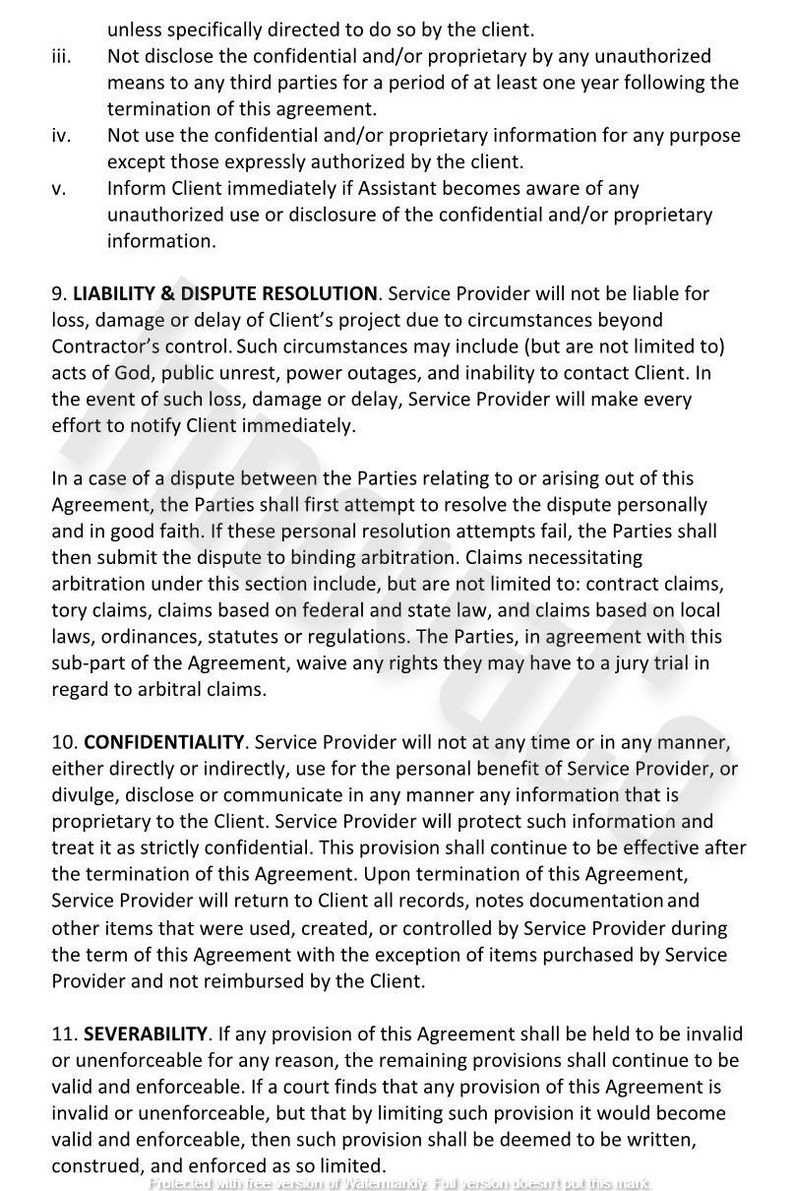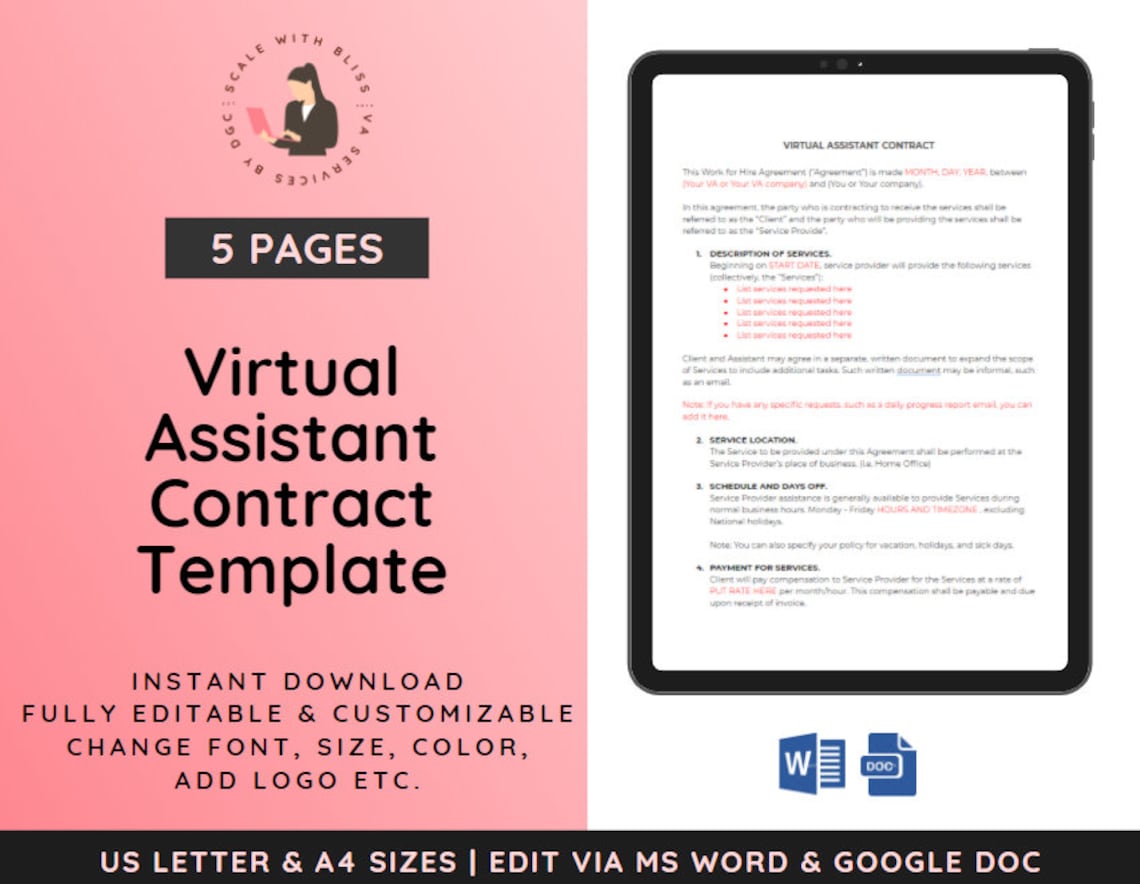

The best-case scenario is that everything is going to be fine. It’s very tempting to think we are protecting the relationship if we build it on trust. We don’t want to make our client sign something because we think it will start the working relationship off on the wrong foot. We may think, “I know this person,” or “They were a personal referral,” or “They’re my first client.” We think we have good reasoning and judgment that we can trust our intuition or discernment. Your Virtual Assistant Contracts: Best or Worst Case Scenario?Īs Virtual Assistants, when we think about having a Virtual Assistant contract or not having one, we typically put ourselves in a best-case scenario situation in our heads. Number 4: Refer to your virtual assistant contracts, as needed.Number 3: Get your contract signed by you AND your client.


While you don’t have to be a lawyer or play one on TV in order to protect your business legally, it IS important to have a good contract to protect yourself.

If you are new to the concept of starting a Virtual Assistant or freelance business (or you are seriously considering starting one), it is important to remember there is a legal side to every business.īut that doesn’t mean starting a business has to be scary! In this post, we’re talking about the equivalent of that for your business-the Virtual Assistant contract. “Yes… I’ll go in this dark, scary room with strangers and agree that it’s totally cool if I die”. You know how whenever you go out with family or friends to do a fun physical activity (like an Escape Room), the company makes you sign a waiver? Today, we are going to get REAL about Virtual Assistant Contracts.


 0 kommentar(er)
0 kommentar(er)
